Presidential candidate Nandala's three big pledges for West Nile
Mafabi promised that, if elected President of Uganda, he would prioritise poverty eradication, equitable resource allocation and meaningful community-based development.
Nandala’s third major promise was to decentralise services to reduce the distance citizens travel to access health care, government offices, and social services. (Credit: Alfred Ochwo)
WEST NILE - 2026 General Election FDC presidential flag-bearer Nathan Nandala Mafabi on Sunday, November 16, 2025, concluded an intense week-long campaign sweep across West Nile with three districts where he promised to revive cotton production, confront corruption and bring public services closer to people.
The six-day-long journey through the region started in Adjumani on November 10 through the region's 14 districts of Arua, Arua city, Madi-Okollo, Terego, Obongi, Moyo, Yumbe, Nebbi, Maracha, Pakwach, and Zombo, among others, drawing crowds at each stop.
Despite decades of government programmes aimed at development, West Nile remains one of the poorest regions in Uganda. Many families continue to struggle with basic needs and youth unemployment remains high. 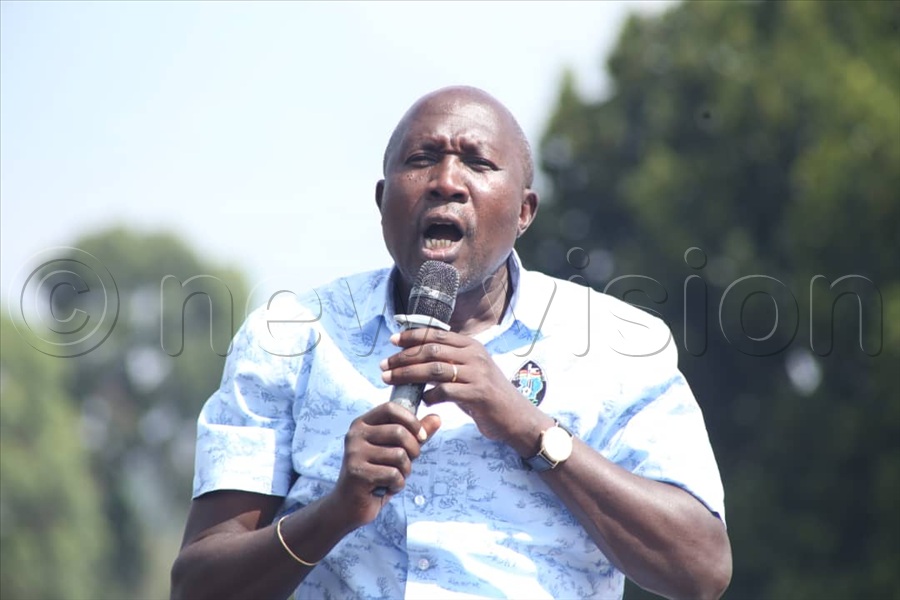
Mafabi promised that, if elected President of Uganda, he would prioritise poverty eradication, equitable resource allocation and meaningful community-based development. (All Photos by Alfred Ochwo)
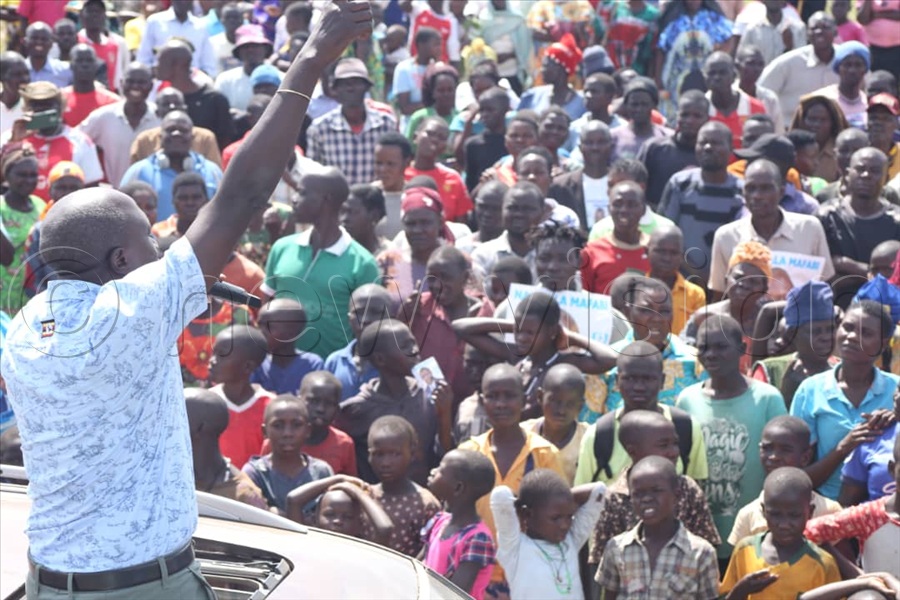
Mafabi promised that, if elected President of Uganda, he would prioritise poverty eradication, equitable resource allocation and meaningful community-based development.
He stressed that his campaign model is focused on meeting people at the grassroots, rather than holding rallies only in major towns.
“We are not going to be in towns like our brothers in NUP or NRM,” he said. “We come to the villages because we want you to understand us, and we also want to understand the life you live.” He highlighted.
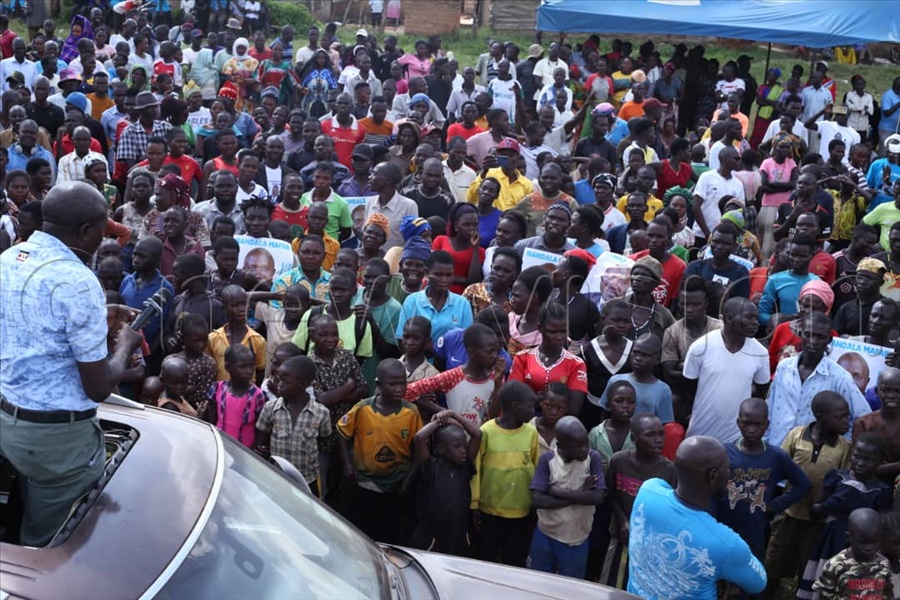
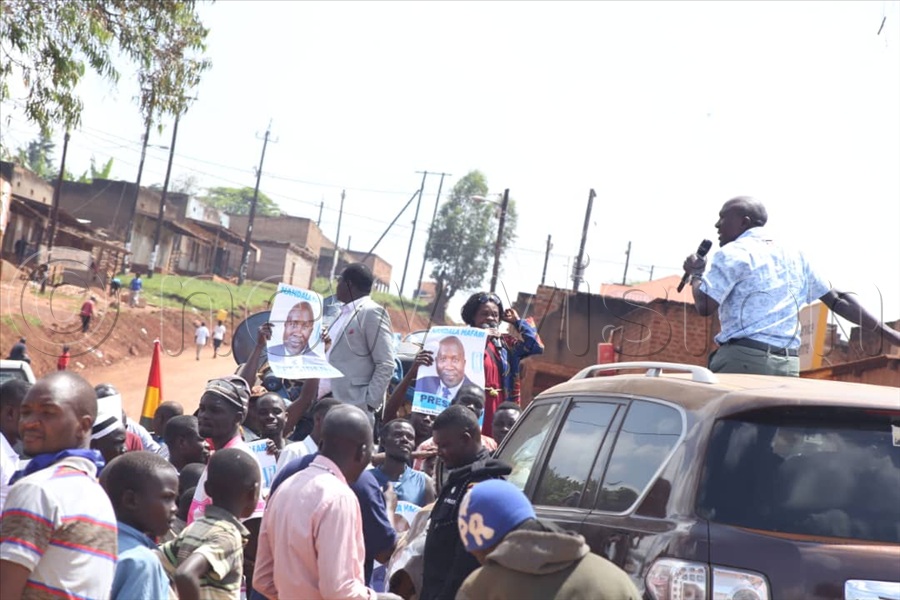
In Arua city, FDC supporters filled the grounds of Arua Primary School, waving FDC colours and chanting Nandala’s name as he took to the stage. This was a day before the climax of his West Nile campaign trail, and it unfolded peacefully; security forces, often a source of tension during Opposition rallies, kept a notable distance and did not interfere throughout his movements across the region.
Throughout the region, Nandala was accompanied by senior FDC figures who have stood by him throughout the tour.
They included the party’s deputy president and Obongi County Member of Parliament seat aspirant Hassan Kaps Fungaroo, and Lira City Mayor Mazaid Khemis, who has crossed district lines to contest for the Arua City MP seat. Their presence signalled the party’s renewed efforts to re-energise its base in a region where political loyalties have become increasingly fluid.
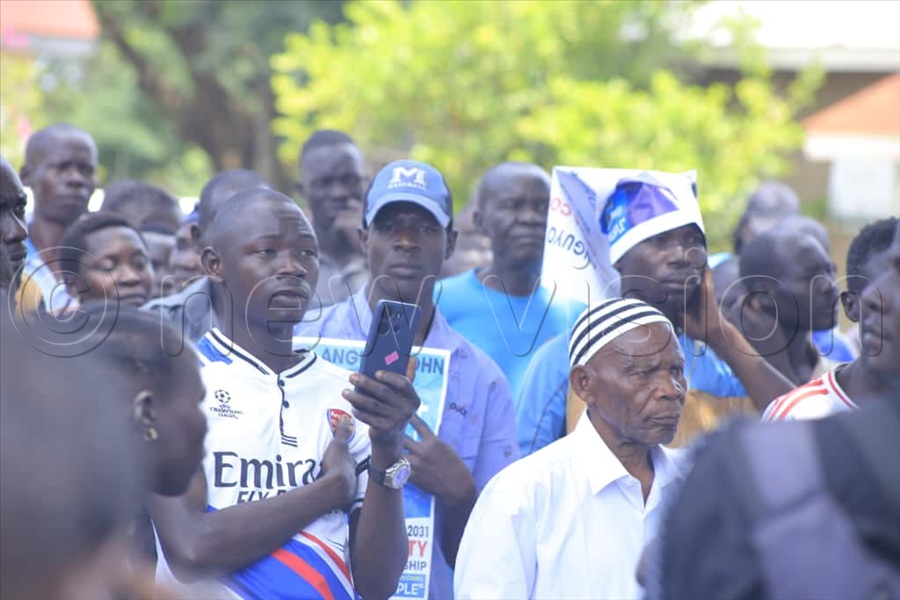
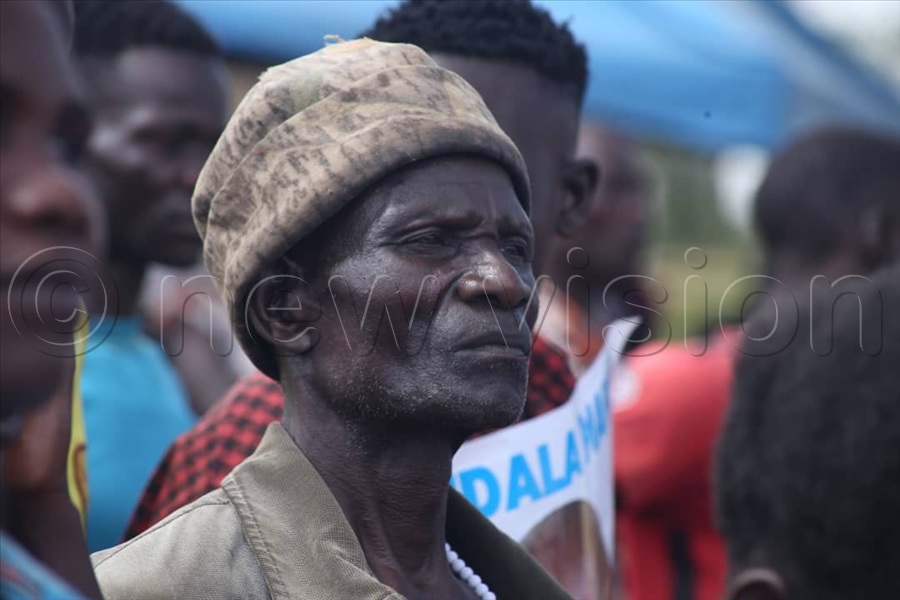
Reviving economic backbone
Speaking to supporters, Nandala said West Nile’s economic decline reflected years of neglect and poor governance.
He promised that an FDC-led government would revive cotton, once the region’s economic backbone, arguing that its collapse had pushed thousands of farmers into poverty.
“Cotton built homes, paid school fees and supported entire communities in West Nile,” he said. “We are going to restore cotton production with improved seed, better pricing and value addition so that farmers earn from the full chain, not just the raw product.”
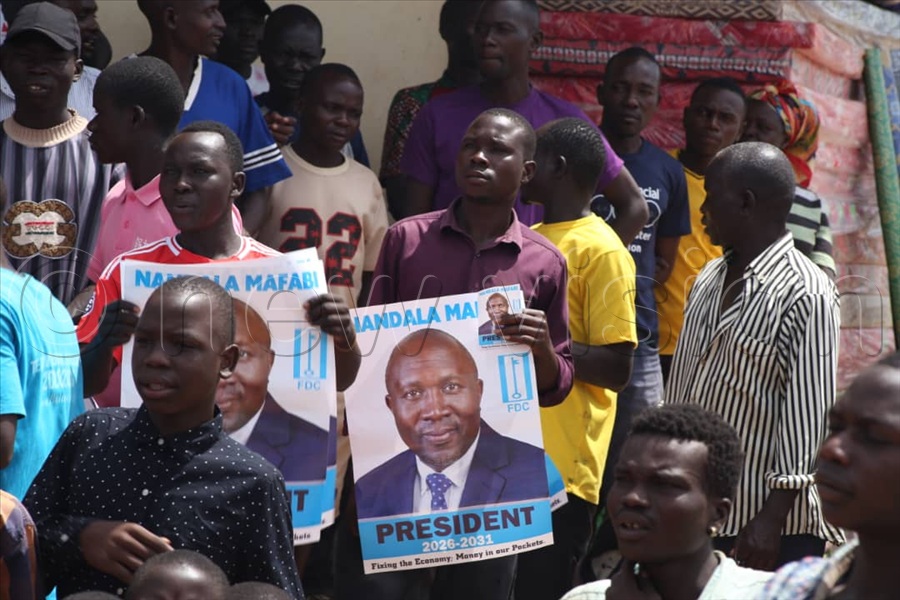
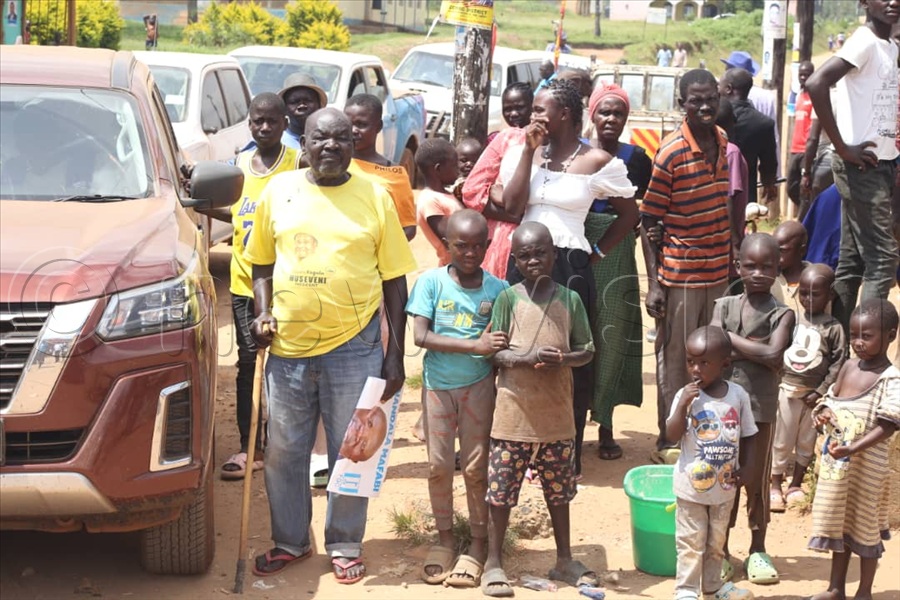
Corruption fight
He also pledged to intensify the fight against corruption, describing it as the main barrier to development. According to him, money lost in corruption could have built health centres, repaired roads, and improved education systems.
“Corruption is a disease that has eaten into every sector where the country loses about sh10 trillion ,” he told the crowd. “We shall strengthen institutions, enforce accountability, and ensure that public funds serve the people, not a small group of individuals.”
Decentralising services
Nandala’s third major promise was to decentralise services to reduce the distance citizens travel to access health care, government offices, and social services.
He argued that people in remote districts like Madi-Okollo, Obongi, Terego, and Zombo have suffered unnecessary hardship due to poor planning and over-centralisation.
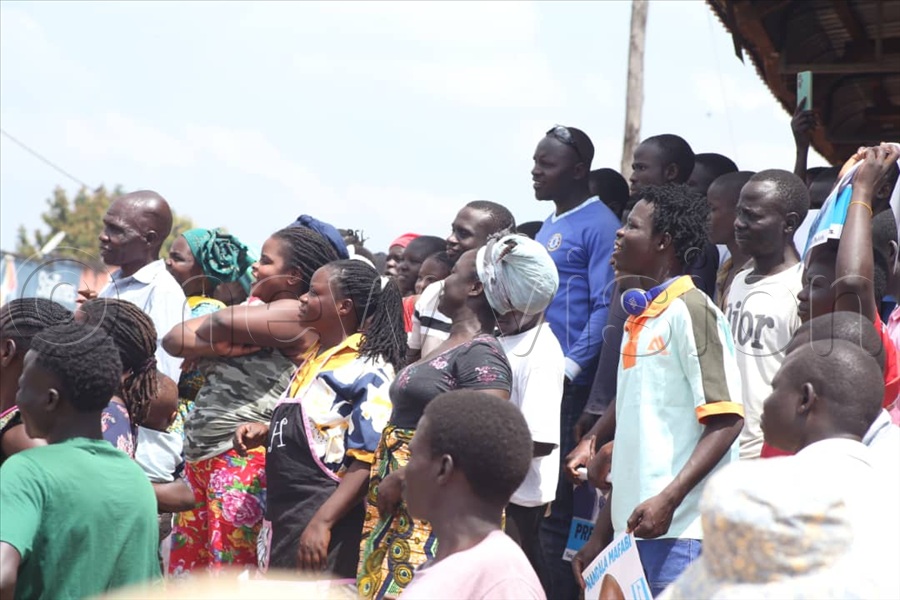
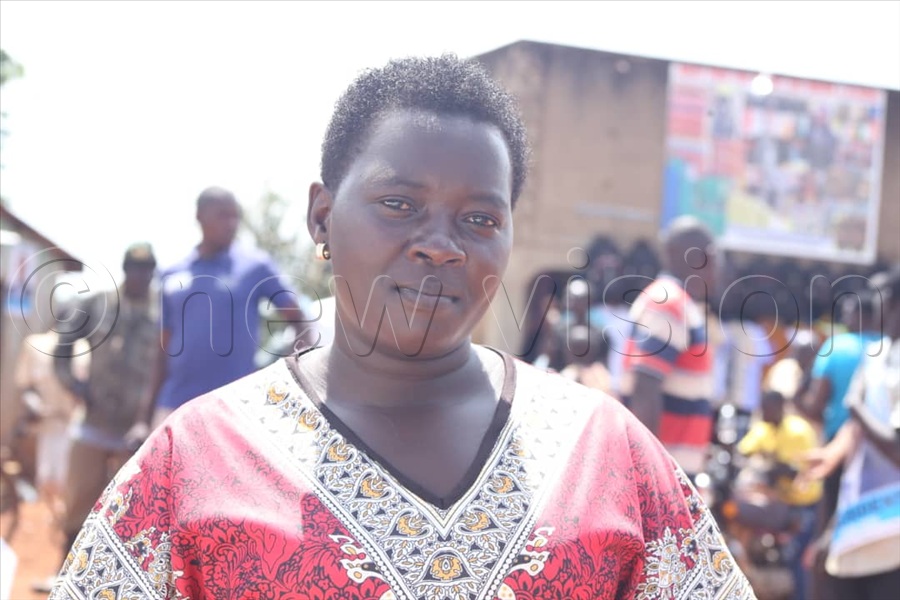
“We want a Uganda where a mother in Yumbe does not travel to Arua City to find a simple service, or a farmer in Nebbi does not spend days chasing papers in Kampala,” he said. “We will bring government closer to the people.”
Across the districts he visited, residents expressed optimism but also highlighted urgent needs they hoped any new government would address.
In Moyo, Severina Nyang, a mother said the education system in the region was slowly collapsing. She explained that overcrowded classrooms, poorly motivated teachers, and lack of learning materials had pushed many children out of school.
“We need a leader who can rebuild schools,” she said. “Our children walk long distances just to find teachers who are too overwhelmed to give them proper attention. If Nandala can prioritise education, he will restore hope to many families.”
In Terego, Morris Drateru, a boda boda rider, said health services had deteriorated to an alarming level. He recounted how locals travel to Arua City for basic treatment because several health centres lack drugs, equipment, and qualified personnel.
He also complained about the family famine, and this is because governmet has not prioritised farming in the region.
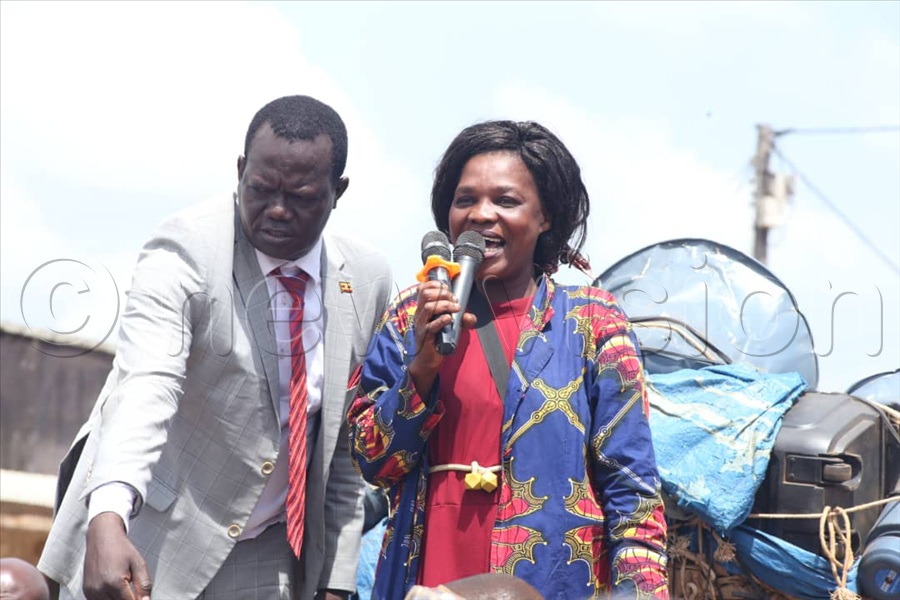
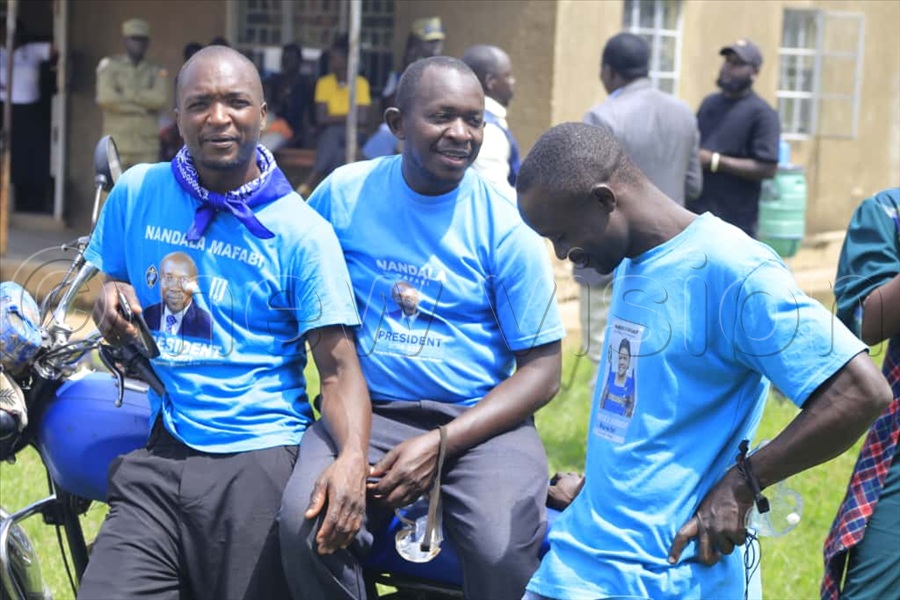
“People are dying from illnesses that can be treated. If the next government can stock our facilities and deploy more health workers, life will be easier. Health should be within reach, not a luxury,” he said.
Road infrastructure also came up repeatedly as a pressing concern. In Pakwach and Zombo, residents said poor road conditions had affected trade, especially for farmers transporting produce.
They said the dusty, pothole-filled routes slowed business and increased transport costs.
“Our roads are terrible. Traders lose money because goods get spoiled on the way, and transport becomes too expensive. We want leaders who can improve these roads so that people can work and move freely.” Lucy Piwati, a resident of Baronje village in Alangi Sub-county in Zombo district told New Vision.
Through all his speeches, Nandala insisted that West Nile’s demands mirrored those of the rest of Uganda, which included fairness, opportunity, dignity, and development that can be felt at household level.
He concluded his rallies on Sunday, November 1,6 urging voters to choose leaders who value integrity and economic justice.
“This election is about the future of your children and grandchildren,” he told the cheering crowd. “Together, we can build a country that works for everyone.”
Despite all these promises, the 3.8 million region is a stronghold of the National Resistance Movement (NRM). He will then head to the Acholi sub-region, a region he has camped in before in the districts of Nwoya, Kiryandongo, Lira and Oyam, first on his day one, which is Monday, November 17.